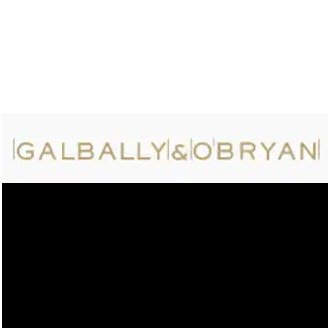Best Franchising Lawyers in Dandenong
Share your needs with us, get contacted by law firms.
Free. Takes 2 min.
List of the best lawyers in Dandenong, Australia
About Franchising Law in Dandenong, Australia:
Franchising law in Dandenong, Australia, encompasses all legal matters concerning the buying, selling, or running of a franchise business. This includes franchise agreements, disclosure documents, intellectual property, business structures, and dispute resolution. The Franchising Code of Conduct regulated by the Australian Competition & Consumer Commission (ACCC) provides the legislative framework for franchising.
Why You May Need a Lawyer:
Professional legal advice in the field of franchising is usually necessary to navigate through complex franchise agreements, understand your rights and obligations as a franchisee or franchisor, and assist in resolving franchise disputes. Lawyers can also provide significant help with issues related to intellectual property, financial disputes, marketing fund management, and renovations or relocation of your franchise business.
Local Laws Overview:
Key aspects of local franchising laws in Dandenong, Australia, primarily revolves around the Franchising Code of Conduct. The code mandates full-disclosure to franchisees before their agreement execution, prohibits unfounded terminations, and necessitates dispute resolution procedure. The Competition and Consumer Act 2010 is another major piece of legislation that impacts franchising, prohibiting misleading, deceptive, or unfair practices in the franchise industry.
Frequently Asked Questions:
1. How can I protect my rights as a franchisee?
It's essential to consult a franchise lawyer who can help you understand the complexities of the Franchise Agreement and the Franchising Code of Conduct. They can explain your rights and obligations under the law and assist in negotiations with the franchisor.
2. What should I do if I have a dispute with my franchisor?
If you face a disagreement or dispute with your franchisor, it is recommended to seek legal advice immediately. A franchise lawyer can guide you through the dispute resolution process mandated under the Franchising Code of Conduct.
3. What is a disclosure document?
A disclosure document contains crucial information about the franchisor and the franchise system. It is a mandatory document that a franchisor needs to provide to the franchisee at least 14 days before the signing of a franchise agreement.
4. How can I sell my franchise?
If you wish to sell your franchise, consult a lawyer to understand the process outlined in your Franchise Agreement. Your ability to sell may be subject to certain conditions or approval from the franchisor.
5. What are the consequences of breaching the Franchising Code of Conduct?
Franchisees or franchisors who breach the Franchising Code of Conduct may face substantial penalties and infringement notices administered by the ACCC. It may lead to fines, legal proceedings, or even termination of a franchise agreement.
Additional Resources:
The best place to look for additional resources to understand Franchising Law better is the ACCC website as it offers extensive information and assistance. Checking the Australian government's business website can also provide you useful information on franchising. Don't forget to consult professional bodies such as the Franchise Council of Australia for industry-specific advice and resources.
Next Steps:
If you require legal assistance in franchising, identify a reputed law firm specializing in franchising law. Schedule a consultation to discuss your needs. Ensure that you fully understand your rights and obligations before entering into or exiting a franchise agreement, and never hesitate to seek legal advice when in doubt or facing disputes in the business.
Lawzana helps you find the best lawyers and law firms in Dandenong through a curated and pre-screened list of qualified legal professionals. Our platform offers rankings and detailed profiles of attorneys and law firms, allowing you to compare based on practice areas, including Franchising, experience, and client feedback.
Each profile includes a description of the firm's areas of practice, client reviews, team members and partners, year of establishment, spoken languages, office locations, contact information, social media presence, and any published articles or resources. Most firms on our platform speak English and are experienced in both local and international legal matters.
Get a quote from top-rated law firms in Dandenong, Australia — quickly, securely, and without unnecessary hassle.
Disclaimer:
The information provided on this page is for general informational purposes only and does not constitute legal advice. While we strive to ensure the accuracy and relevance of the content, legal information may change over time, and interpretations of the law can vary. You should always consult with a qualified legal professional for advice specific to your situation.
We disclaim all liability for actions taken or not taken based on the content of this page. If you believe any information is incorrect or outdated, please contact us, and we will review and update it where appropriate.








